Malta: A Tiny Nation but a Powerful European i-Gaming Hub
Malta is a small sovereign island nation located in the Mediterranean Sea between Italy and Africa and the country has emerged as a leading global centre for online gaming, better known as i-Gaming. There are many factors contributing to its success and emergence on the global online gaming stage such as its strategic location, favourable tax regime and robust regulatory framework. With its progressive and pro-active attitude towards the world of i-Gaming, Malta has attracted numerous global operators and service providers from across this booming industry. According to the website wifitalents.com, the worldwide industry “…is set for explosive growth, reaching $127.3 Billion by 2027”. If you are interested in all the statistics, you can have a look at some of the staggering numbers at https://wifitalents.com/statistic/igaming-industry/
This article delves into the reasons behind Malta’s i-Gaming success, the regulatory bodies overseeing the industry and the impact of i-Gaming on especially the island’s real estate sector.
What Are The Reasons for i-Gaming’s Winning Hand in Malta?
Several factors have contributed to Malta’s prominence in the i-Gaming industry:
- The Country’s Favourable Tax Regime: Malta offers one of the most competitive tax regimes in Europe for i-Gaming businesses. The low corporate tax rate, combined with various tax incentives, makes the island an attractive destination for operators seeking to reduce their tax liabilities.
- Possessing a Robust Regulatory Framework: Malta has established a comprehensive legal framework for the i-Gaming industry, ensuring a fair and transparent operating environment. The Malta Gaming Authority (MGA) is the primary regulator, responsible for licensing, monitoring and enforcing compliance with i-Gaming laws.
- The Country’s Strategic Location: Malta’s strategic location in Europe and being part of the EU provides easy access to major European markets. This geographical advantage has enabled i-Gaming operators to reach a large customer base.
- Having a Skilled Workforce: Malta boasts a highly skilled workforce with expertise in information technology, finance and customer service. This talent pool is essential for the operation of i-Gaming businesses.
- An English-Speaking Population: Malta’s native language is Maltese along with English as its secondary official language. As an English-speaking country, Malta thus attracts international businesses and talent. This linguistic advantage facilitates communication and collaboration within the entire i-Gaming industry and with the US, the UK and the Asia Pacific region as some of the biggest players, the need for cross-border communication is essential and this is where the English language is a huge advantage.

The Role of the Malta Gaming Authority (MGA)
The Malta Gaming Authority (MGA) is the primary regulatory body responsible for overseeing the gaming industry in Malta, one of the most reputable jurisdictions for online and land-based gaming globally. Established in 2001, the MGA ensures that gaming activities are conducted fairly, transparently, and securely, both for operators and players. The Authority regulates a wide range of gaming sectors, including online casinos, sports betting, lotteries, and skill games, among others. It is known for its rigorous licensing process, requiring operators to meet strict standards related to financial stability, anti-money laundering measures, player protection, and responsible gaming practices. As a result, an MGA license is highly respected within the global gaming industry, often seen as a mark of credibility and reliability.
Beyond its regulatory functions, the MGA also plays a significant role in shaping the future of the gaming industry by promoting innovation and adapting to emerging trends. The Authority is proactive in updating its regulatory framework to accommodate new technologies and gaming models, such as block chain and crypto currency gaming. It also collaborates with other international regulatory bodies to maintain high standards across the industry and prevent illegal activities. Through these efforts, the MGA has helped position Malta as a leading hub for gaming companies and a benchmark for effective regulation in the global gaming sector.
The MGA’s primary functions include:
- Licensing: The MGA issues licenses to i-Gaming operators that meet the required standards and to those that comply with Maltese laws.
- Monitoring: The MGA monitors the activities of licensed operators to ensure compliance with regulations and also in order to protect consumers.
- Enforcement: The MGA takes action against operators that violate regulations, including fines, license revocation and legal proceedings.
- Consumer Protection: The MGA promotes responsible gambling and fiercely protects consumers’ rights.
The MGA’s reputation for fairness and transparency has further contributed to Malta’s attractiveness as an i-Gaming jurisdiction. Want to know more about the MGA? Then make sure to have a look at https://www.mga.org.mt/
The Roll of the Dice in the Real Estate Sector
The unprecedented growth of the i-Gaming industry in recent years has had a significant impact on Malta’s real estate sector in several ways. The influx of i-Gaming businesses and their employees has increased the demand for office space, residential properties and commercial premises. As a result, the real estate market has hugely benefitted from the global success of i-Gaming in Malta in recent years.
What comes as no surprise is that this influential industry has also contributed to the development of new commercial districts and even favoured residential areas. As a result many developers have invested in projects to accommodate the growing demand for space, leading to the construction of modern office buildings, luxury apartments and retail centres. Consequently, areas like Sliema, St. Julian’s and Gzira saw a big increase in the development of especially commercial real estate, with office buildings and co-working spaces springing up to accommodate the industry’s growth.
Furthermore, the i-Gaming industry has stimulated economic activity in other sectors, such as hospitality, tourism and retail. The presence of i-Gaming businesses has attracted many international visitors to Malta, boosting the local economy overall.
It is important to mention that on the residential front, the i-Gaming sector has also contributed to rising property prices and rental rates, particularly in areas favoured by its well-paid workforce of professionals. Those working in the gaming industry often seek high-quality accommodation, leading to increased demand for especially luxury housing. This trend has driven property development and investment, particularly in prime locations along the coast. While this has been advantageous for property developers and investors, it has also led to challenges, such as affordability issues for local residents. The i-Gaming industry’s impact on Malta’s real estate sector is a clear example of how a burgeoning industry can hugely influence a country’s property market, bringing with it both untold opportunities and at times challenges.
Cashing Out
As the global i-Gaming industry continues to evolve and grow at an unbelievable rate, Malta’s position as a leading and global centre for the industry is expected to remain strong and increase even further.
If you are interested in renting or buying a place to live as someone who is employed in the i-Gaming industry, contact us at Frank Salt Real Estate: Malta’s biggest real estate group. We have been assisting not only local professionals, but also those who come from all over the world to work in the exciting and dynamic i-Gaming sector. When it comes to residential properties, we have superb apartments, penthouses, villas, bungalows and more on our database for sale and for rent in some of the most desirable locations in Malta. If you are an i-Gaming business owner and are looking for premises for your company, we can guarantee that consulting with our Commercial Division in St Julian’s will result in a jackpot!




 Back to Blogs
Back to Blogs



